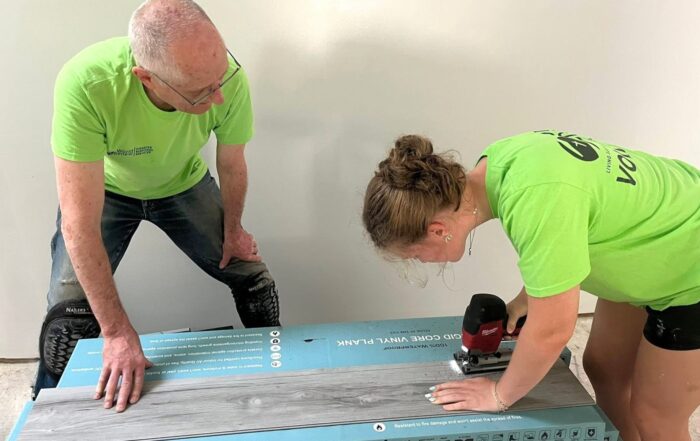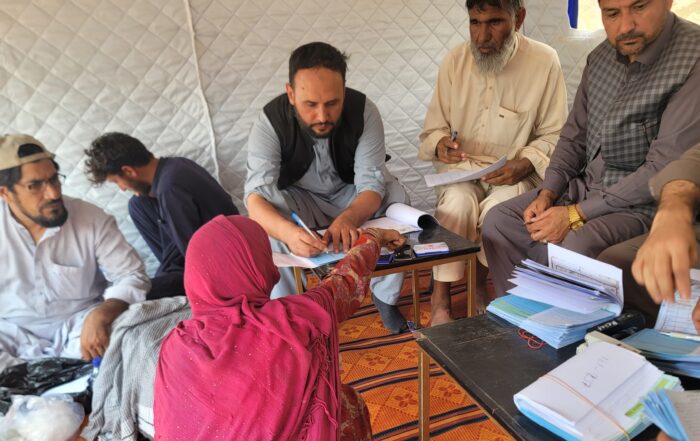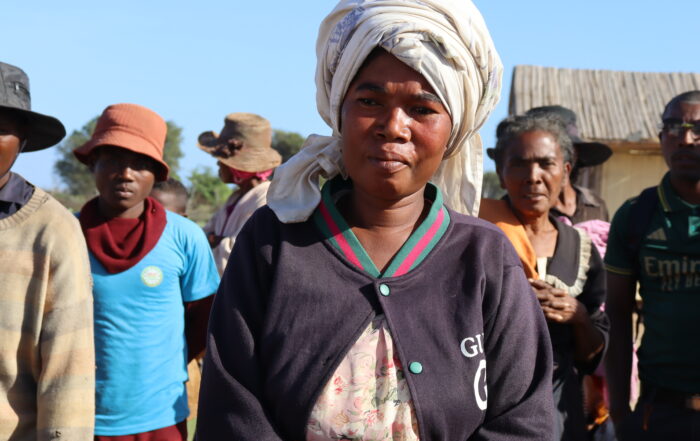
Resilience in the Face of Disaster in Myanmar

Resilience in the Face of Disaster in Myanmar
On March 28, barefooted, Mae* ran down the stairs of her apartment building to quickly fetch a delivery. She left her two children in the apartment, thinking she would only be gone for a minute or two. As she stepped out the door of the building, an earthquake rocked Myanmar. The building collapsed. Mae lost her children, her home, and all of her possessions. She stood, sobbing, near the heap of debris that was once the place she cuddled with her children, cooked their meals, and hoped for a prosperous future for them. In her grief, she fixated: “Where are my shoes? I need my shoes.”
After reporting on the impact of the initial earthquake and the following aftershocks, the media has moved on, but people like Mae continue to be devastated by loss. Approximately 4,000 people have died, nearly 6,000 have been injured, and hundreds remain missing nationwide. However, actual figures are likely to be higher due to underreporting. It is estimated that the earthquakes have affected more than 17 million people across the country.
The hardest-hit areas have been without stable electricity and clean water, while telecommunications and internet access were severely disrupted, cutting off affected communities from essential services. Power outages forced health facilities in affected areas to rely on generators, challenging healthcare operations due to fuel shortages. There is still a substantial need for emergency food, essential medicines, ongoing treatment for the injured, safe water and sanitation, and trauma healing.
Thousands of people have been displaced and are still living in makeshift shelters or out in the open. Although there are houses still standing, people are too afraid to go inside for fear the continuing aftershocks will bring everything down. Families are struggling to survive, and there is still rebuilding to think about.
A World Renew team is working with our trusted local partners in Myanmar to deliver emergency supplies to the families most severely impacted by this disaster. World Renew program advisor Helen Catton works in Asia and says: “The situation is desperate, and rains have begun, making people living outside that much more at risk. This increases the chances of outbreaks such as cholera.”
But, Helen says, amidst the despair, there are shining examples of the resilience of the people of Myanmar. “In one community, the community members themselves decided to borrow the fire truck to pump water,” Helen shares. “They have set up two water pumps in the river to pump water and fill containers for those living nearby. Then they fill the fire truck and drive it to communities that are further out to deliver water. What a beautiful example of community-led response.”
The people impacted by this disaster are elderly citizens who wish for a peaceful life, mothers and fathers who want happiness for their children, and children who only want to be children, playing with their friends and laughing. But trauma plagues hearts right now—the trauma of living through the earthquakes and the reignited trauma that the continuing aftershocks bring. Families are struggling to find food, water, and medical support. Providing life-saving essentials during times of crises like these gives families hope to move forward.
World Renew gives thanks to God for the generosity of our supporters whose gifts have helped our partners to provide 12,926 families with food and water assistance; 16,220 people with emergency cash transfers to cover essential needs like food, water, and shelter for one month; and 617 families with personal hygiene kits, cooking implements, cutlery, and tarps to provide some protection from the blistering 100-degree temperatures and pouring rain.
Please help World Renew and our partners share hope with more people by giving to our Myanmar disaster response.
*Name has been changed to protect identity.
On March 28, barefooted, Mae* ran down the stairs of her apartment building to quickly fetch a delivery. She left her two children in the apartment, thinking she would only be gone for a minute or two. As she stepped out the door of the building, an earthquake rocked Myanmar. The building collapsed. Mae lost her children, her home, and all of her possessions. She stood, sobbing, near the heap of debris that was once the place she cuddled with her children, cooked their meals, and hoped for a prosperous future for them. In her grief, she fixated: “Where are my shoes? I need my shoes.”
After reporting on the impact of the initial earthquake and the following aftershocks, the media has moved on, but people like Mae continue to be devastated by loss. Approximately 4,000 people have died, nearly 6,000 have been injured, and hundreds remain missing nationwide. However, actual figures are likely to be higher due to underreporting. It is estimated that the earthquakes have affected more than 17 million people across the country.
The hardest-hit areas have been without stable electricity and clean water, while telecommunications and internet access were severely disrupted, cutting off affected communities from essential services. Power outages forced health facilities in affected areas to rely on generators, challenging healthcare operations due to fuel shortages. There is still a substantial need for emergency food, essential medicines, ongoing treatment for the injured, safe water and sanitation, and trauma healing.
Thousands of people have been displaced and are still living in makeshift shelters or out in the open. Although there are houses still standing, people are too afraid to go inside for fear the continuing aftershocks will bring everything down. Families are struggling to survive, and there is still rebuilding to think about.
A World Renew team is working with our trusted local partners in Myanmar to deliver emergency supplies to the families most severely impacted by this disaster. World Renew program advisor Helen Catton works in Asia and says: “The situation is desperate, and rains have begun, making people living outside that much more at risk. This increases the chances of outbreaks such as cholera.”
But, Helen says, amidst the despair, there are shining examples of the resilience of the people of Myanmar. “In one community, the community members themselves decided to borrow the fire truck to pump water,” Helen shares. “They have set up two water pumps in the river to pump water and fill containers for those living nearby. Then they fill the fire truck and drive it to communities that are further out to deliver water. What a beautiful example of community-led response.”
The people impacted by this disaster are elderly citizens who wish for a peaceful life, mothers and fathers who want happiness for their children, and children who only want to be children, playing with their friends and laughing. But trauma plagues hearts right now—the trauma of living through the earthquakes and the reignited trauma that the continuing aftershocks bring. Families are struggling to find food, water, and medical support. Providing life-saving essentials during times of crises like these gives families hope to move forward.
World Renew gives thanks to God for the generosity of our supporters whose gifts have helped our partners to provide 12,926 families with food and water assistance; 16,220 people with emergency cash transfers to cover essential needs like food, water, and shelter for one month; and 617 families with personal hygiene kits, cooking implements, cutlery, and tarps to provide some protection from the blistering 100-degree temperatures and pouring rain.
Please help World Renew and our partners share hope with more people by giving to our Myanmar disaster response.
*Name has been changed to protect identity.



